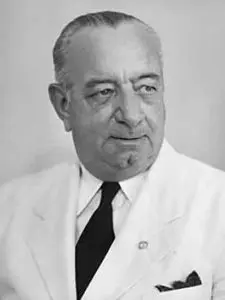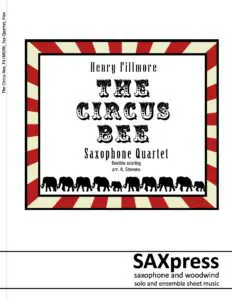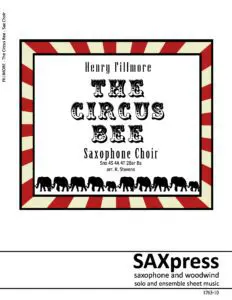Henry Fillmore
Henry Fillmore was an American musician, composer, publisher, and bandleader, best known for his many marches and screamers (loud and fast circus marches).
Fillmore was born in Cincinnati, Ohio as the eldest of five children. In his youth, he mastered piano, guitar, violin, flute, and slide trombone. He kept his trombone activities a secret at first, as his circumspect religious father James Henry Fillmore (1849–1936) a composer of gospel songs, believed it an uncouth and sinful instrument. Henry’s mother secretly bought a used trombone for him and concealed Henry’s progress on it from his father. He began composing at 18. Fillmore entered the Cincinnati Conservatory of Music in 1901.
After graduating from the Cincinnati Conservatory of Music, Fillmore traveled the United States as a circus bandmaster with his wife, an exotic vaudeville dancer named Mabel May Jones. They were married in St. Louis. During the 1920s, Fillmore returned to Cincinnati conducting the Shriners Temple Band, which he turned into one of the best marching bands in the country. After the death of John Philip Sousa in 1932, he was often called “The March King”.
The Fillmore Music House was co-founded in 1874 by his father, James Fillmore, and his uncle, Frederick Fillmore, under the “Fillmore Brothers” name, which began as a Cincinnati-based hymnal publisher. When Henry Fillmore became president after his father’s death in 1937, he transformed the firm to focus on orchestral and band music, along with musical instrument sales.
In 1938, Fillmore, after being advised by a physician that he had just a few months to live, retired to Miami, Florida. He went on, however, to prove the physician wrong, keeping an active schedule rehearsing high school bands in Florida and composing marches. The Henry Fillmore Band Hall, the rehearsal hall for many of the University of Miami’s performing groups, acquired its name as a tribute to Fillmore’s work in the band genre. He was given an Honorary Doctorate of Music by the University of Miami in 1956 in recognition of his career. Fillmore lived out the rest of his days in South Florida.
Fillmore wrote over 250 pieces and arranged orchestrations for hundreds more.
Henry Fillmore titles available from SAXpress
Showing all 2 resultsSorted by latest



